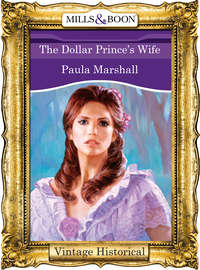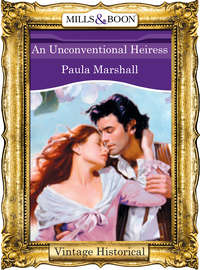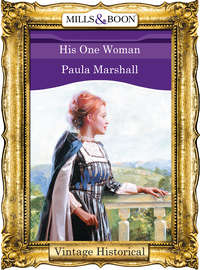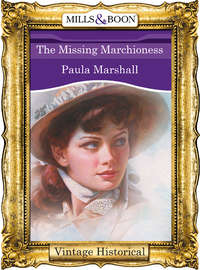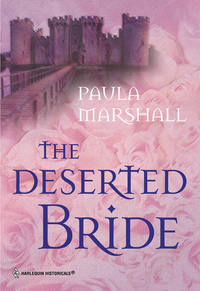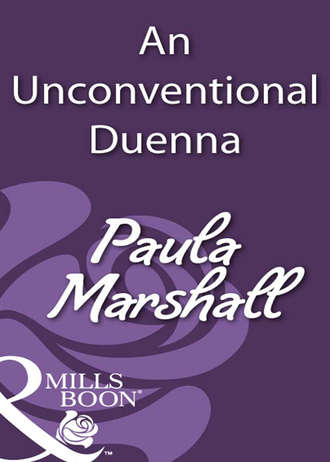
Полная версия
An Unconventional Duenna
If this reproach both pleased and amused Athene, it stung Mrs Tenison, who now had the task of placating the young man whom she had mentally marked down as a prospect for Emma.
“Oh, quite,” she said, while looking to her husband for guidance, something which she rarely did. “Most proper of you, Lord Kinloch. You may leave it off in future, Miss Filmer.”
Oh, so she was Miss Filmer now, was she? And Lord Kinloch had just saved her from the humiliation of wearing her dreadful cap. She had barely time to take in these two momentous concessions when she registered that Mr Cameron was looking at her with the oddest expression on his face. If Nick was experienced in the art of reading other people’s expressions well, Athene, who was a novice just acquiring this necessary skill, was already acute enough to grasp that, for some reason, Mr Nicholas Cameron did not approve of her.
Well, pooh, to that, he was not the man in whom she was interested, although judging by the manner in which the cousins spoke to one another it would be as well not to antagonise him.
She had scarcely had time to think this before she was astonished to find Nick bowing to her, and saying in his deep, gravel voice, quite unlike Lord Kinloch’s charming, light tenor, “I trust that you will do me the honour of standing up with me in the next dance, Miss Filmer.”
Here was another splendid opportunity to cement her new-found friendship with Lord Kinloch and all his hangers-on.
“I should be delighted, sir,” she replied, casting her eyes innocently down.
If she was not fooling herself in her pursuit of Adrian, neither was she fooling Nick. He could scarcely suppress a grin when he put out his hand to take her on to the floor.
“Athene,” he said to her charming profile. “Grey-eyed Pallas. May one ask if you own an owl as well?”
He wondered if she were educated enough to catch the allusion. Athene turned towards him, and if grey eyes could ever glitter, hers glittered. Conversation with Mr Cameron was obviously going to be of quite a different order from that with his cousin. She wondered what Mr Tenison had been saying to him.
She decided to be honest and not pretend charming innocence. “I only possess the name of the Greek goddess of wisdom, Mr Cameron, not her attributes. Owls are in short supply in our part of Northampton.”
“But not wisdom, I suppose. Tell me, does your young charge frequently suffer from these fits?”
There was something slightly cutting in his tone. They had reached their set, so she turned to face him before the dance began.
“They are not fits, Mr Cameron,” she told him coolly, “and I am sure that when you and Mr Tenison conversed he spoke to you of them. I am merely her companion, not her physician, but they are, I am sure, nervous only and when she becomes more confident will pass in time.”
“And do you intend to help her to be more confident, Miss Filmer? I would have thought that the presence of another young woman as much in command of herself as you seem to be might have the effect of distressing, rather than helping, her.”
“Then you thought wrongly again,” she told him, sure now by his tone of voice and his expression that he was her enemy, although why she could not imagine. “I happen to be able to comfort Miss Tenison. I have done so since we were at school together. It is others who have the opposite effect on her.”
She did not say, most of all her dominant mother, for that would have been neither proper nor polite. She was surprised that Mr Nicholas Cameron, who seemed a perceptive young man, had not noticed how much Emma’s mama extinguished her.
“We are,” she went on, “likely to make a spectacle of ourselves if we do not end our conversation immediately and ready ourselves for the dance as everyone else in our set has done.”
Oh, bravo, Miss Filmer, was Nick’s internal reaction to this. You are all and more what I thought you were: a resourceful adventuress on the make. One thing is also certain: cousin Adrian will be no match for such a determined creature as you are proving to be.
Later he was to ask himself why he felt such hostility to the mere idea that Athene Filmer would trap his cousin into marriage, but at the time he was not yet able to consider her, or her apparent wiles, dispassionately.
The dance passed without further conversation, leaving Nick to discover that Miss Filmer’s body, beneath her disfiguring grey gown, was as he had already supposed, as classically lovely as her face. He could not be surprised when, on the way home, his cousin Adrian spent the whole journey talking enthusiastically of Miss Filmer’s beauty and charm.
“A stunner,” he kept exclaiming. “A very stunner—don’t you agree, Nick?”
Yes, Nick did agree, but although he also distrusted Athene’s motives in pursuing his cousin, he didn’t think that it was yet politic to be critical of her. Like many not over-bright young men, Adrian could be extraordinarily obstinate, and Nick knew from experience that to oppose him at this point would make him even more determined to admire this new beauty to grace the London scene.
All he said was, mildly, “I wonder who her people are? Listening to Mrs Tenison I gained the impression that she would not have approved of a total nobody being her daughter’s friend and companion.”
Adrian snorted. “She’s a poor little creep-mouse, the daughter, isn’t she? Not a bit like my Athene.”
My Athene! Goodness, thought Nick, amused, one dance and an hour of her company and he’s really taken the bait to the degree that he thinks of her as his.
“I can’t remember you having been so besotted with a female before on such a short acquaintance,” he ventured. “We really know nothing of her.”
“Only that she’s in good society, is beautiful and says jolly things,” riposted Adrian. “I noticed that you were chattering away with her before the dance started. What in the world did you find to talk about if you weren’t impressed by her looks and address?”
“Owls,” said Nick gravely. “Owls. Apparently they are rather scarce in the wilds of Northampton.”
“Owls!” exclaimed Adrian. “That’s not what pretty girls like to talk about. If that’s all you could think of to interest her, it’s no wonder she didn’t impress, or charm you.”
Nick refrained from telling him that he didn’t think that Miss Athene Filmer was trying very hard to charm him, and that he, far from charming Miss Filmer himself, had been rather short with her.
Yes, the less said the better. Perhaps Adrian would grow bored with having to keep up mentally with the clever creature which he judged Miss Filmer to be. He would be far better off with the creep-mouse who would make no intellectual demands on him and who had spent the rest of the evening staring adoringly at him, but was unhappily aware that Lord Kinloch only had eyes and ears for her beautiful companion.
In the meantime he would keep careful watch over them both, for he felt certain that the besotted Adrian would be chasing as hard as he could the beauty who he hoped would rescue him from his mother’s reproaches by consenting to marry him and thus give Kinloch lands an heir.
Chapter Two
“If you are to accompany us to Madame Félice’s, Filmer, then you must wear your cap, but you may leave it off when you go into society since it seems to distress Lord Kinloch.”
Of all things Mrs Tenison wished to please Lord Kinloch. He was quite the grandest young man who had been presented to Emma since she had arrived in London, and Mrs Tenison took his wish to be allowed to call on them as soon as possible to mean that he was showing an interest in her daughter.
Lady Dunlop had told Mrs Tenison that if she wished Emma to cut a dash in London society then she must be dressed by the fashionable modiste, Madame Félice. Mrs Tenison had seen at once that Emma’s clothes, whilst considered charming in the provinces, were by no means fit for a young woman who wished to be admired when she was presented to the Prince Regent.
Madame Félice’s shop was in Bond Street, that Mecca of the rich and the pretentious. The lady herself was famous not only for her taste, but for her beauty. She had arrived from nowhere: the on dit was that she must have a rich protector, because only that could explain how she had managed to find the money, not only to buy such prestigious premises, but also to furnish them in the best possible taste.
Athene was walking sedately behind Emma, her mama, and Lady Dunlop, who was again acting as their patron in this matter, for Madame Félice, it appeared, did not make clothes for everyone, but chose her customers carefully. She could only look around her and marvel since, except for a few long mirrors, strategically placed, they might have been in one of the drawing-rooms of the ton. A pretty young woman showed them to a long sofa before which was an occasional table graced by a bowl of spring flowers. There was no sign of either Madame Félice or the clothes which she designed and sold. Their escort offered them lemonade from a silver pitcher before departing to notify her of their arrival.
“The workrooms are at the back,” said Lady Dunlop reverently. She was another large woman, like Mrs Tenison and possessed, if possible, even more address. She was the widow of a one-time Lord Mayor of London and was consequently immensely rich. “You will understand that French is Madame’s first language but she speaks tolerable English. Ah, here she comes.”
Madame was as elegant as one might have expected. Her day gown was pale blue in colour, high-waisted and classically cut. Its small ruffled linen collar was tied with a simple bow. Emma, who had been a little worried that she might be expected to wear something outré, was relieved to see that Madame’s toilette was of the plainest. Indeed, she would have worn it with pleasure herself. For her part, Athene could only wish that Madame was going to design clothes for her.
It was only when she drew near, greeting them all with a bow when they rose to meet her, that Athene had the oddest sensation that she had met Madame before. This was of course, a nonsense, since Lady Dunlop had told them that Madame had come from Paris via the Low Countries some time during the last two years, but had only recently set up in Bond Street.
“Pray be seated,” she told them in prettily accented English, before seating herself in a high-backed chair after Lady Dunlop had carried out the necessary introductions. “I understand that it is Miss Tenison I am to dress. It will be both a challenge and a pleasure, since I must retain her charming innocence and yet create something which will be sure to attract attention. A difficult feat, that, but I am sure that it can be managed.”
Her eyes roved over Athene when she added, “I am not required to dress Miss Filmer also?”
Mrs Tenison, having beamed at Madame’s description of Emma, now bridled a little at the mention of Athene.
“By no means. I fear that Miss Filmer cannot afford the fees you will be charging.”
“A pity,” said Madame sweetly. “No matter, we will concentrate on Miss Tenison’s requirements.”
She proceeded to do so. A bevy of young women were summoned and came in carrying pattern books, bolts of silk, satin and gauze, lengths of ribbon and made-up silk posies of a kind which she said that she would create for Emma. A small sketchbook and pencil was handed to Madame, who began to draw very rapidly a series of elegant garments for Emma. She showed the sketches to Emma and asked her opinion of the style and the colours which she had chosen.
Mrs Tenison, always dominant, objected to this as firmly as politeness would allow, saying, “I would prefer, if you please, to select my daughter’s coming-out gowns myself. I am not sure that she is necessarily the best judge of what will suit her.”
Emma, who had been enjoying herself immensely, and had once or twice called on Athene to help her, hung her head a little at this and looked frantically first at Madame and then at Athene, who was the amused spectator of Madame’s manipulations and who had also just remembered where she had seen the modiste before.
From the moment that Madame had begun to draw, Athene had recognised her. She knew at once where it was that she had last seen that intent and highly concentrated expression and who had worn it.
Yet, could it be possible? Could it be that Madame Félice, so fine, so polished, who had recently arrived in London from Paris via the Low Countries, was in reality harum-scarum, fly-away, country-bred, ill-dressed Louise Hanslope with whom she had played as a child? Louise, the daughter of a mysterious never-seen French émigré, who had been adopted by the Hanslopes in place of the child it seemed that they could never have.
Later she had been sent away to Northampton to be apprenticed to a dressmaker, and she and Athene had corresponded with one another even though Louise was some years older than she was.
Now she knew that the lonely child which Louise had been had taken delight in befriending another lonely and unhappy little girl. Later when she had returned to become the Marchioness of Sywell their friendship had been renewed and the two of them had roamed the Abbey grounds enjoying its neglected, but wildly beautiful, scenery.
The last time she had seen Louise before she disappeared had been at the old Rune Stone, set in a stand of trees which was always known as the Sacred Grove. They had been painting it from different angles and she had looked up to see that Louise was lost in the world which she was creating on paper. Athene’s own efforts, although creditable, showed nothing of the great talent for colour and design which Louise’s possessed and which she was now turning to good account in her profitable business.
Perhaps she was mistaken. Athene thought not. She was sure that she, and she alone, had discovered that the missing Marchioness was not dead, not starving in a garret, but was a rich and successful modiste serving the wives of the great ones of the world of society!
And now little Louise Hanslope was saying smoothly to Mrs Tenison, “You may offer me your opinion, madame, but I must remind you that it is Miss Emma who will wear my clothes and she will not be happy in them if they are not to her taste.”
“But they are so extremely simple,” protested Mrs Tenison.
“It is charming innocence that I am dressing, remember?” countered Madame Félice. “If you are not happy with what I am proposing then I suggest that you go elsewhere,” and she began to close her drawing-book.
Lady Dunlop shook her elegantly coiffed head at Mrs Tenison, who said hastily, “Oh, no, madame, I am in your hands. Do as you think fit.”
Athene could scarce repress a laugh at this abject surrender by the tyrant. She gave a little cough, while Emma, released for the first time from the bondage of her dominant mama, said eagerly, “Oh, Madame Félice, I have the most splendid notion. Would it be possible for all my gowns, however they are cut and in whatever material, to be white in colour? I think that it would suit me, particularly if you make me some sprays of lily-of-the-valley, white crocuses and small freesias to wear with them. I have always wanted to wear white.”
It was the first occasion on which Emma had ever asserted herself, and Athene could not fault her taste, so far removed from the dull and often garish toilettes which had been her mother’s choice.
“But…” began Mrs Tenison, only to meet Madame’s stern eye, and mutter, “Oh, very well.”
After that, all went swimmingly. Madame and Emma, between them, finished with a splendidly simple wardrobe. Athene, still amused, managed to catch Madame’s eye when she was inspecting a length of white silk which one of her minions was holding against Emma. Since she was out of Mrs Tenison and Lady Dunlop’s line of sight she indulged herself in a daring wink, which had been one of her and Louise’s jokes in the old days. Madame did not wink, but gave her a slow and meaningful smile.
Oh, yes, she had not been wrong! She had found her old friend, strangely changed. Now all that was left was to renew their friendship, although how she was to do so in front of the two harpies, as Athene naughtily thought of them, might be difficult.
She had not allowed for Madame Félice’s resourcefulness. Before their session was over, that lady, on some pretext, retired to the workrooms at the back of the shop, returning a little later with some small sprays of white silk flowers, already made up as specimens of what she could do, and a pile of paper. After a short interval she handed Athene the paper to hold, having first made sure that none of her minions was near her.
“You will oblige me, I am sure,” she said to the poor companion who had stood, unheeded, throughout the lengthy morning. “They are some sketches I have made which might it amuse you to look through while we conclude our business.”
Her French accent was stronger than ever when she came out with this. Athene duly obliged her by taking the papers and looking through them.
The first one was, as Madame had said, a drawing of a walking dress which would have suited Athene down to the ground, as the saying had it. Beneath it Madame had written, “You would look well in this.”
The second paper had no sketch drawn on it. Instead a short note in Madame’s fine hand said, “I see that my old friend is not deceived. Is it possible that our friendship could be renewed? Surely the slave has some time of her own and could visit one who is a slave no longer?”
The note was unsigned, but its message was plain. Madame Félice, or rather, Louise, the Marchioness of Sywell, wished to meet her, away from her charge and the harpies.
Unobserved, Athene spent the remainder of the visit looking through the rest of the papers, which were all drawings of the most elegant gowns, coats, bonnets, gloves, and even parasols. Occasionally, she showed one to Lady Dunlop to admire. Mrs Tenison was too busy agonisedly watching Emma being fitted out in what she privately considered to be the most unsuitable clothing to be able to take note of anything else.
Eventually everyone but Mrs Tenison was satisfied and prepared to leave. Athene handed the papers back to Madame Félice, saying, “My thanks, Madame. They were most instructive and I shall be sure to follow your advice.”
Madame smiled sweetly and said, “I am delighted that I was able to offer you assistance. It has been a pleasure to dress Miss Emma—I think that she is someone who will improve when her confidence grows. I trust, Miss Filmer, that you will be of equal assistance to her.”
Athene nodded, guiltily realising that in her efforts to attract Lord Kinloch, far from helping Emma, she was taking his attention away from her! On the other hand, there would be many young men who would be only too happy to court Emma—or “make a leg at her,” as the current fashionable slang had it, so she was not really depriving her of anything serious.
Nevertheless, what her old friend had said had made her feel uncomfortable, and she tried to console herself with the thought that if she did not look after herself, no one else would.
She took that thought with her into the drawing-room that afternoon when Lord Kinloch—with his attendant cousin—paid his promised visit to them. She had already decided that during her one afternoon off she would visit Bond Street and renew her friendship with Louise—or rather Madame Félice as she must now think of her.
She wondered crossly whether Lord Kinloch ever went anywhere without his interfering shadow: she was unhappily aware of Nick’s sardonic eye on her, even though she sat, all prim and proper, a little away from the main company. She was not wearing her cap, for after some strong—and private—words between Mrs Tenison and her husband, she had been informed after nuncheon that she was to leave it off in future.
Adrian was on his high ropes at the prospect of seeing Athene again, although for form’s sake he had to address most of his conversation to the Tenisons.
“I have the most interesting news for you,” he announced jovially. “I have decided that now that I have acquired a curricle I shall waste no time in racing it to Brighton. I intend to make it known that I am ready to accept any wager from anyone.”
“A reasonable wager, I trust,” said Nick sardonically.
“Of course,” said Adrian grandly—although no such proviso had entered his head. “I am not so green as to waste my fortune on it.”
Nick refrained from pointing out that his cousin had had little or no practice in driving his new toy, and to race it before he was fully ready to do so might be unwise, if not to say dangerous.
It was left to Mr Tenison to say reflectively, “I believe that curricle racing is not without danger, Lord Kinloch. Only the other week two reckless young men were racing at full speed towards Brighton and found themselves side by side on the road in the way of a large cart being driven by a farm labourer. All three vehicles ended up in the ditch. One of the young men broke his arm and the other his leg.”
Athene could not resist asking, “What happened to the poor labourer?”
“History does not relate,” said Nick. “It dealt only with two feckless idiots, and had little to say on the matter of the one poor soul trying to earn a living and who had been deprived of the ability to do so.”
“I think,” said Adrian, “that you may safely rely on me not to do anything foolish.”
Nick, knowing Adrian’s cheerful, if not to say feckless, optimism, doubted that very much. But he did not wish to give his cousin a put-down before the Tenisons.
Emma, however, remarked anxiously, “It sounds very dangerous to me. I beg of you to take care, Lord Kinloch, if you engage in anything so adventurous.”
“It’s little more so than riding a horse,” declaimed Adrian, who had already had this argument with Nick and was determined not to be put off something which was so dear to his heart. “Lots of fellows have raced to Brighton without coming to grief.”
Athene privately thought that Adrian was hardly the man to succeed in a venture which needed both skill and judgement beyond the common run, but she decided to say nothing, until Nick came out somewhat provocatively with, “And you, Miss Filmer, what do you think of Lord Kinloch’s engaging in this tricky pastime?”
“That it is not for me to question his judgement in the matter, since I have not yet seen him driving his curricle. If and when he feels that he is ready to take on all comers, then we must respect his decision.”
Nick could not help thinking, his expression growing more sardonic than ever, that Miss Filmer ought to be a man and then her talent for tactful and double-dealing answers could be put to practical use. His respect for her intellect grew as rapidly as his dislike for her apparent duplicity!
“Bravo, Miss Filmer,” said Adrian, who was quite unaware of the nuances in Athene’s answer. “So happy to see that not all of my friends are killjoys. You will be sure to cheer me on when I do decide to race.”
“Indeed, Lord Kinloch.”
“Come, come,” he said, beaming around on them all, “since you are now my friends I must be Adrian to the ladies and Kinloch to you, sir,” he ended, addressing Mr Tenison.
Such gracious condescension was meat and drink to Emma’s mother. Unaware that Athene was M’lord’s real target and not Emma, she drowned him in effusive thanks, already thinking of the happy day when she would be able to speak of Emma to her friends as “My daughter, Lady Kinloch”. She had, however, already added Nick to her lengthy list of people whom she disliked.
Mr Tenison remarked dryly, “Nevertheless, Kinloch, I am bound to support Mr Cameron’s reservations about the wisdom of your trying to race after such a short period of practice.”
His wife said sharply, “It is just like you, Mr Tenison, to throw cold water over young people’s pleasures. I am sure that Lord Kinloch knows what he is doing. We shall certainly cheer you on whenever you do race you may be sure of that, m’lord!”
Conversation, which had been general, now became particular. Adrian addressed himself to the three women, while Mr Tenison quietly continued his conversation of the previous evening with Nick, which had been interrupted by Emma’s return.


